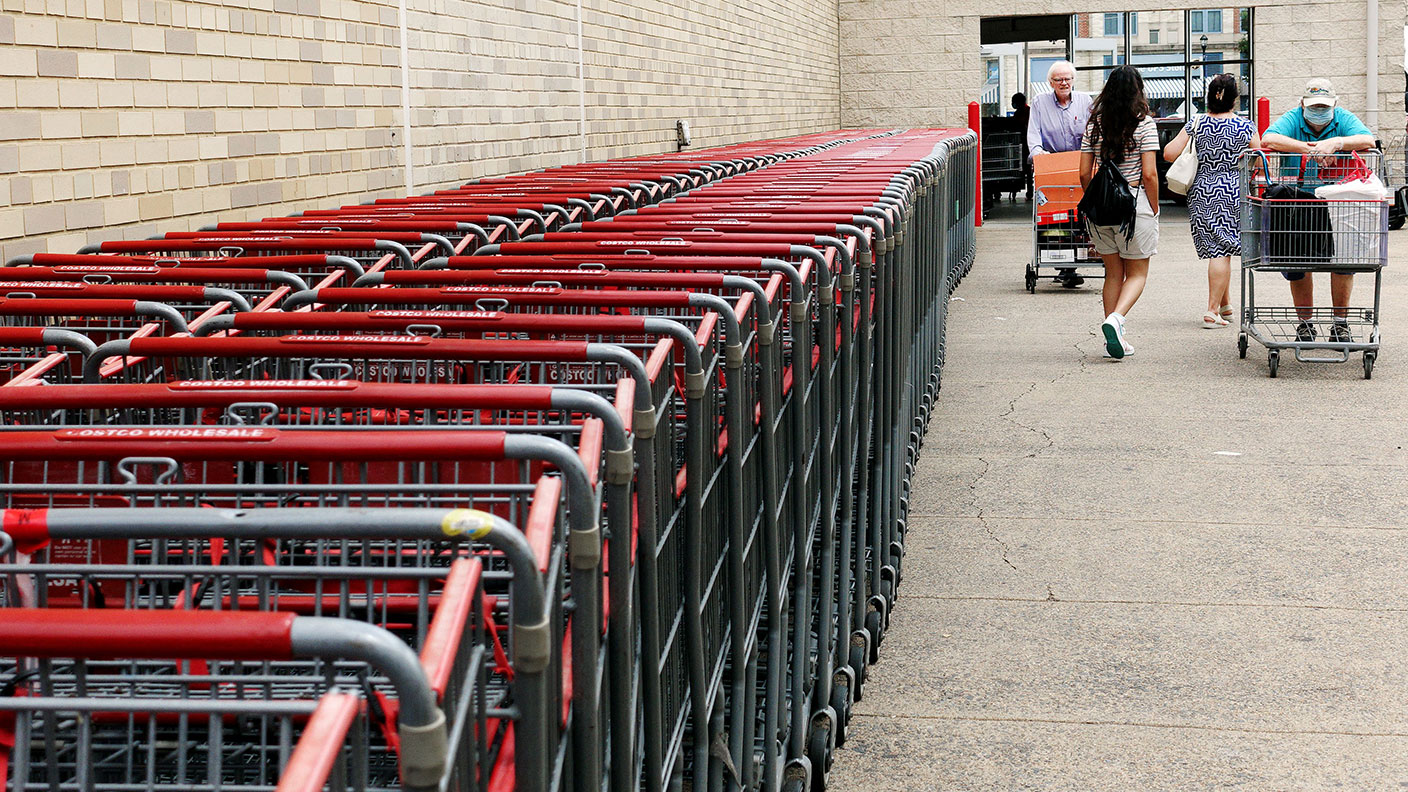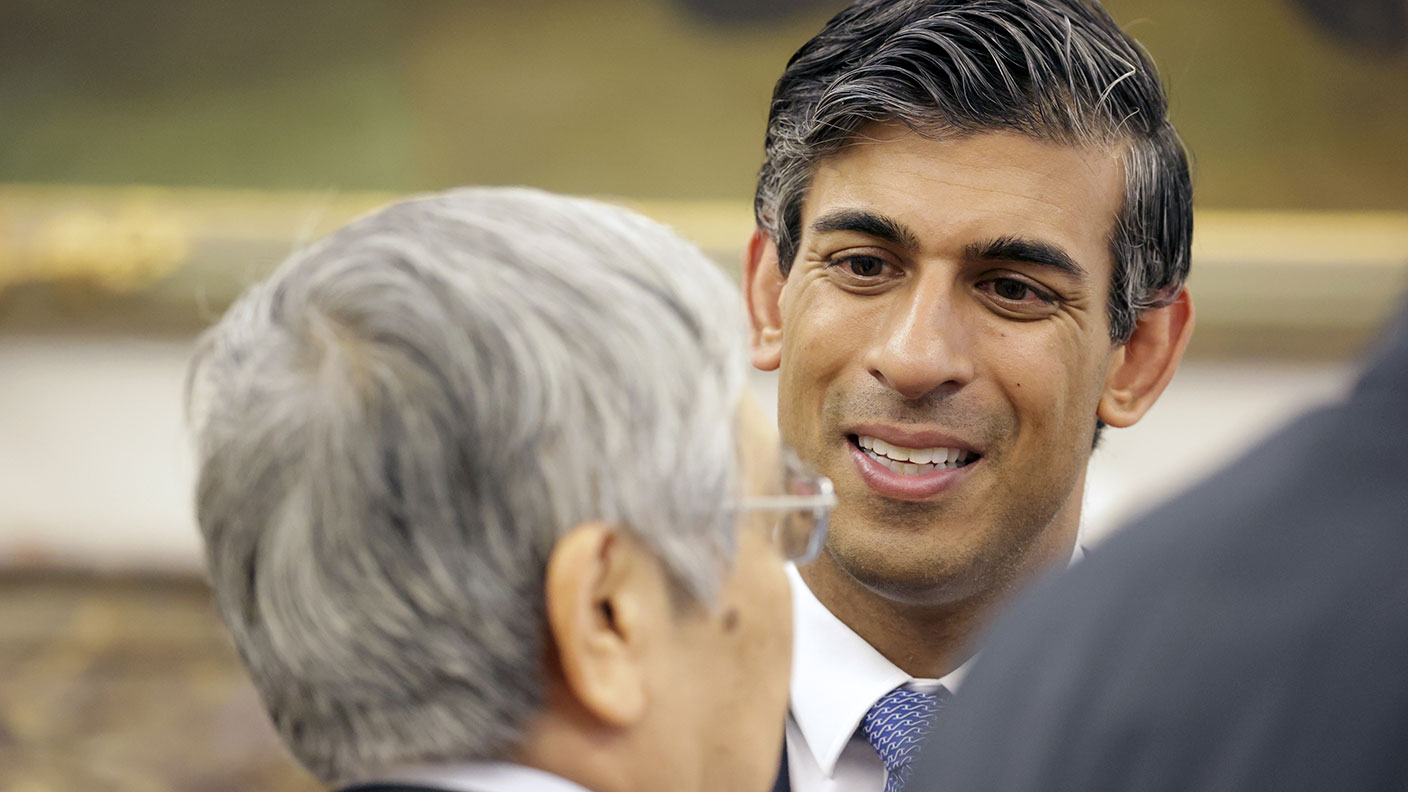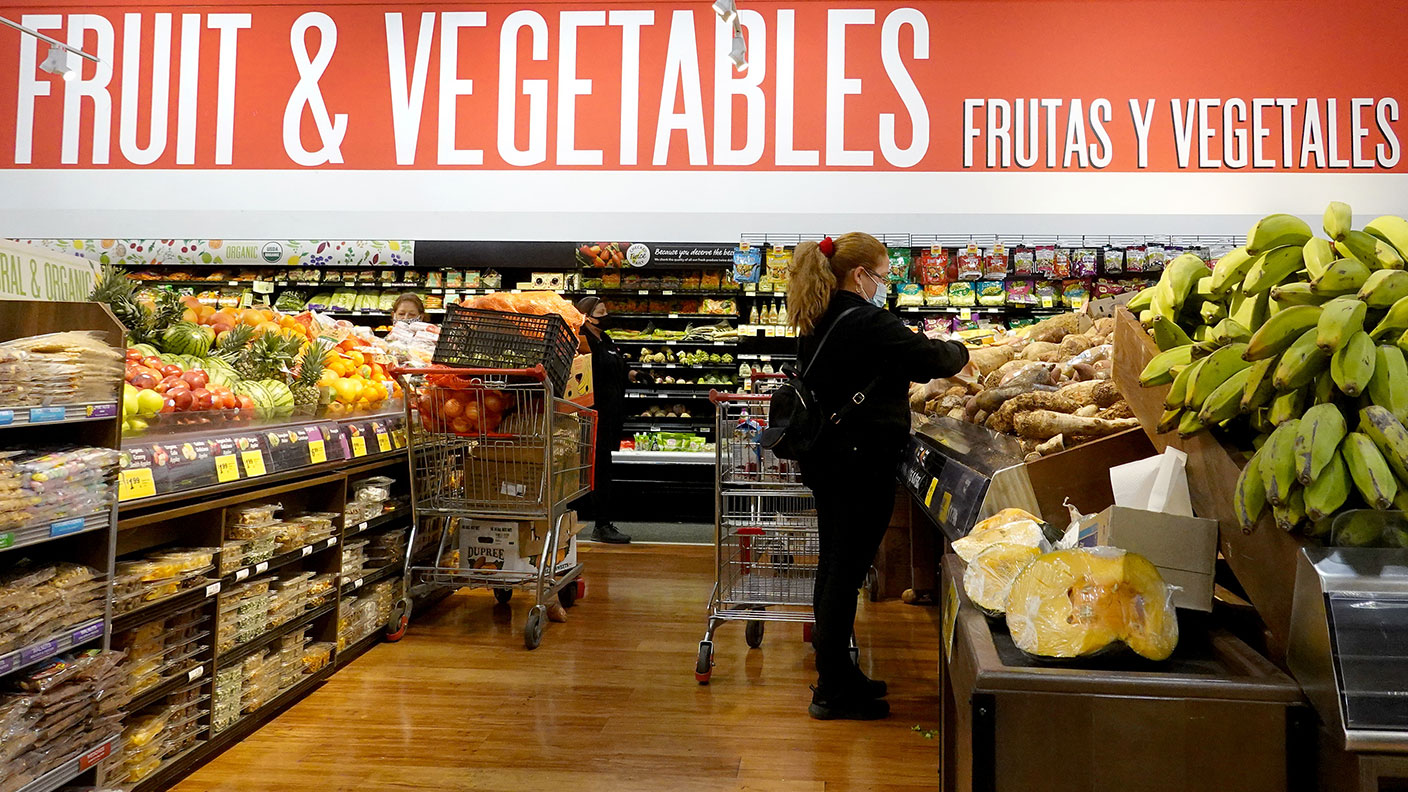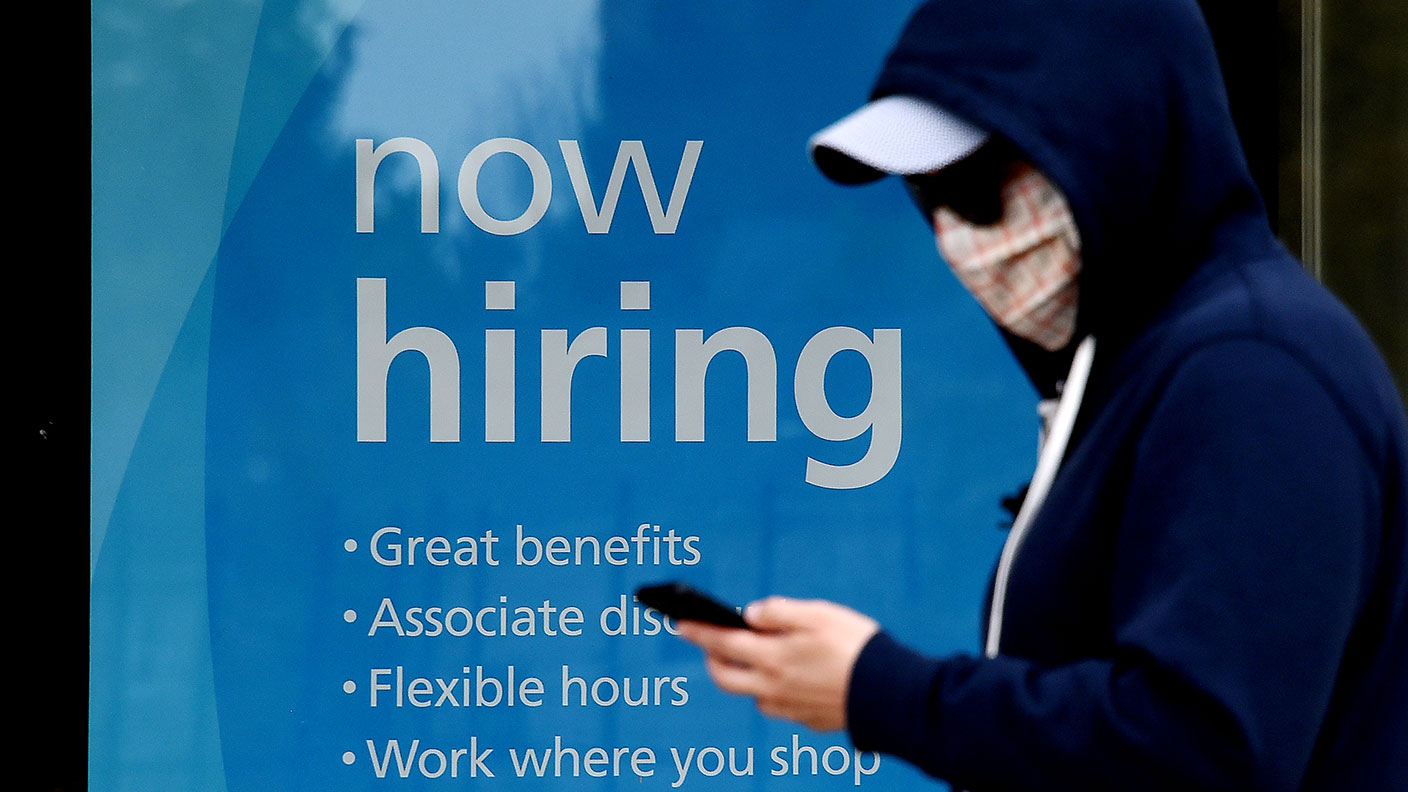German banks are now charging savers – could it happen here?
Until now, putting money in the bank has come with at least a little bit of interest. That might be about to change, as savers in Germany are finding to their cost.

Get the latest financial news, insights and expert analysis from our award-winning MoneyWeek team, to help you understand what really matters when it comes to your finances.
You are now subscribed
Your newsletter sign-up was successful
Want to add more newsletters?

Twice daily
MoneyWeek
Get the latest financial news, insights and expert analysis from our award-winning MoneyWeek team, to help you understand what really matters when it comes to your finances.

Four times a week
Look After My Bills
Sign up to our free money-saving newsletter, filled with the latest news and expert advice to help you find the best tips and deals for managing your bills. Start saving today!

The idea of getting paid interest on your savings used to be an uncontroversial topic.
You put your money in the bank, and the bank pays you for the privilege of borrowing your money.
These days, in the UK, if you get paid any interest at all, it's at a rate well below inflation.
MoneyWeek
Subscribe to MoneyWeek today and get your first six magazine issues absolutely FREE

Sign up to Money Morning
Don't miss the latest investment and personal finances news, market analysis, plus money-saving tips with our free twice-daily newsletter
Don't miss the latest investment and personal finances news, market analysis, plus money-saving tips with our free twice-daily newsletter
So your savings are already losing money in real terms.
But be thankful. If you live in Germany, a bank is rapidly becoming a place that you simply pay to store your money.
The first German bank to charge small savers
Volksbank Furstenfeldbruck is a little co-operative bank near Munich. I'd never heard of it up until this week, because "Upper Bavarian financial institutions" would not be my chosen Mastermind topic.
However, VF (as I shall affectionately term it) hit stardom in the FT this week, because it's "become the first German lender to pass on the cost of negative interest rates to new retail customers with small deposits."
If you open an instant access savings account with VF, then you're going to be charged 0.5% a year on all deposits of €1 and above (I haven't checked their overdraft rates yet).
As the FT points out, a good chunk of German banks have been charging customers, but so far it's been those with deposits above €100,000. This is the first time your average saver has been hit with the grim reality of the European Central Bank running a negative interest rate.
So why has the bank done this? I mean, who'd want to be the first? That's always been the argument against negative deposit rates in high street banks (I've made it myself at some point, I'm sure). But that assumes that a high street bank might want savers as customers. At a certain point, that is no longer a safe assumption.
The problem for German banks right now is that savers are (understandably) keen to avoid charges by parking their money at a variety of lenders, to avoid entering the negative rate zone. These savers probably see another bank as their "main" bank, and the other banks as mere parking places for their money.
A customer like that is now actively costing banks money. So they don't want them. In effect, the 0.5% charge is a deterrent VF has pointed out that it won't be charging customers who do other business with it (eg, take out a mortgage or some financial advice, and you won't be charged on your savings).
This is a logical side effect of the "jam tomorrow" bubble
This all sounds a bit topsy-turvy, although less so than it did when the notion of negative interest rates first arrived on the scene.
But it's a logical extension of the "duration" bubble I've been talking about in recent months. Just to recap, the "duration" bubble is maybe better described as the "jam tomorrow" bubble.
In a world where interest rates and inflation keep falling, the gap between the value of money today and the value of money tomorrow, keeps shrinking. In deflation, it actually inverts (in other words, £5 tomorrow is worth more than £5 today).
The smaller the gap between the value of money today, and the value of money tomorrow, the lower the perceived risk of locking your money away becomes.
So investors accept ever-lower returns for taking liquidity risk (eg, they will pay very expensive valuations for loss-making companies, or accept tiny yields on risky long-term bonds) and even start having to pay for the privilege of taking no liquidity risk at all (ie, being charged to put money in a bank).
The trillion-dollar question is: when does all of this change? And the answer is that, unfortunately, we don't know. The most obvious catalyst for change is the return of inflation the point at which people start demanding higher returns for locking their money away.
There are probably other catalysts that would have a similar impact. How long will German savers put up with negative interest rates? German tabloids place the blame squarely (and basically correctly) on the European Central Bank. How long does it take before Germans decide that they'd rather revert to the Deutsche Mark than carry on with the euro?
I'm not sure that would be an inflationary event, but people would certainly start to value liquidity again.
Alternatively, maybe that never happens, and Germany instead ditches all aspiration to balancing budgets and embraces the new orthodoxy on government spending. That would probably be inflationary as it would give carte blanche to the entire eurozone to go hell for leather on "stimulus".
Could we see negative interest rates here?
Anyway, bringing it back to the impact on British investors, do I think that negative interest rates will make an appearance in the UK? I hope not and for now at least, I doubt it.
The never-ending process of Brexit has, perhaps a little ironically, helped us out on this front by keeping sterling weak. We've taken part in the currency wars (the process by which central bankers weaken their currencies without admitting that it's a policy goal in order to boost inflation and compete globally), and come out ahead, without having to slash interest rates or print more money.
At this point, I don't think your average central banker in the UK or the US, wants to have to cope with the problems that negative rates are already clearly causing in the countries that currently have them.
It also looks as though the outcome of the next election will give us a big-spending government one way or the other, which you'd expect to keep inflation at least simmering along.
That said, we could also get a hung parliament. And who knows what yet more months and years of stasis could do on that front? Particularly as the Bank of England appears to be tilting towards the idea of loosening monetary policy again.
Maybe we'll get more clarity on 12 December. Maybe we won't. In the meantime, stick to your plan, invest in what's cheap, and make sure you have a bit of gold stashed away for emergencies.
And if you're going to the MoneyWeek Wealth Summit tomorrow, hope to see you there!
Get the latest financial news, insights and expert analysis from our award-winning MoneyWeek team, to help you understand what really matters when it comes to your finances.

-
 Should you buy an active ETF?
Should you buy an active ETF?ETFs are often mischaracterised as passive products, but they can be a convenient way to add active management to your portfolio
-
 Power up your pension before 5 April – easy ways to save before the tax year end
Power up your pension before 5 April – easy ways to save before the tax year endWith the end of the tax year looming, pension savers currently have a window to review and maximise what’s going into their retirement funds – we look at how
-
 Is the US in recession and does it matter?
Is the US in recession and does it matter?Analysis There's a heated debate over whether the US is in recession or not. But why does it matter? John Stepek explains
-
 Has the chancellor done enough to save the UK from recession?
Has the chancellor done enough to save the UK from recession?Analysis UK Chancellor Rishi Sunak announced a new package last week to ease the cost of living crisis. John Stepek explains whether the risk of a UK recession still remains.
-
 Is the UK too open to overseas takeovers?
Is the UK too open to overseas takeovers?Analysis Data shows that the UK is more open to overseas takeovers than other major markets. John Stepek asks: should investors care?
-
 How to manage your money as inflation just keeps rising
How to manage your money as inflation just keeps risingAnalysis Uk inflation is at a 30-year high – and it won't be falling any time soon. So what can you do? John Stepek explains how to manage your money to combat rising prices.
-
 Inflation is going to stay even higher for even longer
Inflation is going to stay even higher for even longerAnalysis Commodity prices – everything from energy to food – are going through the roof. And that’s not likely to end any time soon, says John Stepek. Here's what that means for how you invest.
-
 Inflation is incredibly inconvenient, as we’re all about to learn
Inflation is incredibly inconvenient, as we’re all about to learnAnalysis Inflation doesn't just eat into your wealth, it eats into your time – and can be devastating for those on the lowest incomes. And it's not going away any time soon, says John Stepek. Here's how to invest.
-
 The cost of living crisis is global – US inflation just hit another 40-year high
The cost of living crisis is global – US inflation just hit another 40-year highAnalysis With US inflation running at 7.5%, it’s clear that the cost of living crisis is not confined to the UK. John Stepek looks at the likely reaction from governments and central banks, and what it means for you.
-
 The strong US jobs report is good news for the economy, but not so much for markets
The strong US jobs report is good news for the economy, but not so much for marketsAnalysis January's US jobs report came in much stronger than anyone was expecting, with 467,000 new jobs added to the economy. But things might not be quite as rosy as they seem, says John Stepek. Here's why.